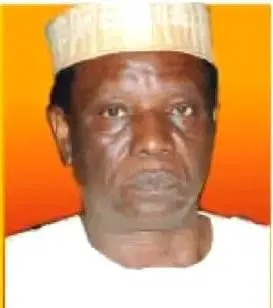Every year, the federal government of Nigeria announces a list of citizens honored with national awards in various categories. Recent hints about potential awardees, as announced by President Bola Ahmed Tinubu, have sparked controversy, underscoring the ongoing discourse around the integrity of such awards.
As we await the complete list, it may be premature to engage in a critical analysis of the few names circulating. However, the growing trend of undeserved accolades warrants concern. Prominent among these are awards organized by major newspapers, which seem to serve as marketing strategies for revenue generation. This practice is further compounded by universities awarding honorary degrees to the highest bidders, thus diminishing the credibility of such honors.
Amid this troubling landscape, a few awards have maintained their integrity. One exemplary case was the recognition of former Kano State Governor Rabiu Musa Kwankwaso by the Nigerian Union of Journalists (NUJ) in December 2013, an event I attended. The NUJ’s decision to honor Kwankwaso for his exemplary fiscal responsibility set a precedent for merit-based recognition.
In preparing my speech for the event, I conducted thorough research on Kwankwaso, whom I had not previously met. I found compelling evidence that justified the NUJ’s award. Unlike the nebulous honors given to multiple nominees today, Kwankwaso was singled out as the best Nigerian governor in the realm of fiscal responsibility—characterized by transparency, discipline, and accountability.
During his tenure, Kwankwaso effectively raised Kano’s internally generated revenue from N400 million to N2 billion monthly by eliminating financial leakages and abolishing unnecessary expenditures. His administration prioritized accountability, requiring state officials, including himself, to justify their actions and expenses to the citizens who elected them. Notably, he regarded the security vote—a common avenue for embezzlement—as a potential source of corruption.
Kwankwaso’s governance philosophy centered on transparency. His administration routinely published information about government projects, allowing citizens to stay informed and actively engage with the state’s affairs. This approach stood in stark contrast to other states where project execution was shrouded in secrecy.
A key aspect of fiscal responsibility is prudent spending. Unlike states where recurrent expenditures dwarf capital allocations, Kwankwaso’s 2013 budget allocated 75% to development projects, facilitating the establishment of three new cities—Kwankwasiyya, Amana, and Bandirawo—without cost overruns.
Several government publications confirmed Kwankwaso’s financial accountability. He adhered strictly to approved budgets, rejecting impulsive expenditures driven by local pressures. His focus remained on substantive needs, particularly in education, which consistently received the largest share of the state budget.
In my concluding remarks at the NUJ event, I commended Kwankwaso for his governance approach, which underscored the futility of exorbitant security votes and the importance of equitable development across rural and urban areas. His administration transformed all 44 local government areas into active project sites, thereby mitigating urban migration.
Shortly after the award ceremony, Kwankwaso sent me a handwritten letter of appreciation, inviting me to visit Kano to witness firsthand the initiatives I hadn’t covered in my speech. His administration established 300 computer schools, boarding facilities with free meals for students, and various vocational training programs, alongside significant infrastructural developments across the state.
While political opponents may have critiqued aspects of Kwankwaso’s tenure, the essence of this discussion is not to canonize him but to emphasize the necessity for awards to be based on specific, verifiable achievements. It is my hope that the current governor, Abba Kabir Yusuf, a protégé of Kwankwaso, will strive to surpass his mentor’s accomplishments, ensuring a legacy of exemplary governance.
Ultimately, awards should recognize genuine contributions to society, reinforcing the notion that merit, integrity, and accountability are paramount in governance

